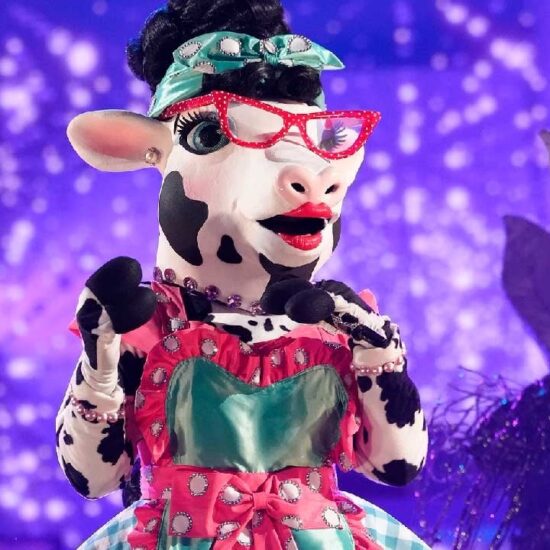
The not-so-secret magic of Netflix’s Formula 1: Drive To Survive is that its editors are good at twisting real events into fascinating drama, all set against the backdrop of a high-intensity sport that until recently—partially thanks to the popularity of Drive To Survive—was largely impenetrable for the average American. But now, five seasons in, the show is running out of ways to make that trick as seamless as it used to be. Plus, there are only so many ways to make a championship exciting when the same guy wins 15 out of the 22 races.
Which is weird, because the 2022 Formula 1 season should’ve been interesting … or at least more interesting than it was. The FIA, the governing body that runs F1, had introduced new regulations that required all of the teams to build completely new cars that worked totally differently from the previous years, seemingly setting the stage for some exciting shakeups in the standings, and the once-unstoppable Mercedes team was out for blood after a hugely controversial finale in 2021 that—regardless of how you feel about the outcome—was completely decided by one man’s interpretation of the rules and not, you know, racing.
But once everyone got their cars on the track and had learned the various intricacies of making them work, it became very obvious that Mercedes wasn’t really a contender (F1 GOAT Lewis Hamilton failed to get a single win for the first time since his career began in 2007), that Ferrari had built an excitingly fast car that was heartbreakingly unreliable, and that reigning champion Max Verstappen’s Red Bull team was going to be completely unstoppable.
There’s drama in those storylines, and Drive To Survive gets some meat out of Ferrari’s seemingly self-inflicted damage and Mercedes’ woes, but there aren’t a ton of interesting new insights here into what happened off the various race tracks around the world. This results in several surprisingly formulaic episodes, where we spend some time with a team (either the drivers or their Team Principal, which is like a head coach) as they describe whatever struggles they’re having, then a big race comes along that they have to win, and then they do. Or they lose in a dramatic fashion. Or they win, but then there’s some additional bad news.
G/O Media may get a commission
A few episodes strain to even hit those marks, feeling more like things that happened rather than any kind of story, which is fine for a documentary series like this, but if you just want to see things happen you could watch actual F1 races. Drive To Survive is all about telling a story, and if there’s no story, there’s just not enough there. There were so few eventful races in the ’22 season that this season sometimes covers the same race more than once, which is repetitive at best and straight-up boring at worst. When you know from an earlier episode that Verstappen wins a certain race (he wins most of them), it sucks all of the drama out of the air when a subsequent episode hangs its ending on the supposed excitement of whether or not Verstappen is going to win that race.
The second half of this latest batch of episodes does at least find a plot thread to latch onto in the form of what F1 people call “Silly Season.” That’s when teams and drivers start plotting and making deals behind the scenes to fill any open driver seats, and 2022’s Silly Season was sillier than most. (At the risk of spoiling things that happened in real life, one team was so confident they had locked down a hotshot up-and-coming driver that they shared a press release saying as much, only for him to go on Twitter shortly after and deny it before later signing with one of that team’s biggest competitors.)
There’s also the sad saga of Daniel Ricciardo, once Drive To Survive’s de facto main character, who had a few difficult years at the McLaren team and ultimately was unable to secure a seat for the 2023 season. The show gives him a nice sendoff, and it’s hard to imagine Drive To Survive retaining any of the heat it had in earlier seasons without Ricciardo’s huge smile and goofy sense of humor—though the show semi-officially lands on a new de facto main character in Haas team boss Guenther Steiner, who still appears in nearly every episode just to say something funny. He even gets some footage dedicated to his home life, an honor usually reserved for the reality TV-savvy Red Bull boss Christian Horner (who gets to carry an episode all on his own, after Red Bull is accused of exceeding F1’s budget cap).
Naturally, a generally uneventful F1 season has resulted in a generally uneventful Drive To Survive season, which is more of an indictment of the documentary series than it is of the sport. The show used to be so good at making everything feel exciting and important, but now some of the most fascinating events in F1 are left out of the show entirely—like the apparent feud between Red Bull’s Verstappen and Sergio “Checo” Perez (possibly left out to avoid antagonizing anyone), or fan-favorite racer and former world champion Sebastian Vettel’s decision to retire. (He barely appears in this season at all, even in background shots.)
It’s not necessarily that those would’ve been better stories to follow, it’s that the stories they did choose to follow end up falling flat more often than they did in previous years. After all, this is coming out in a post-Drive To Survive world. A lot of viewers are more F1 savvy than they were when the series started, and they’ll know what happened, for example, to the Ferrari team’s boss after the 2022 season ended (which is not covered here) or that Red Bull’s punishment for breaking the budget isn’t quite as world-shatteringly severe as Horner makes it out to be. It’s the same sort of useless “just go faster” advice that teams often give their drivers during a race, but the show just needs to … do better.
Formula 1: Drive To Survive season five premieres February 24 on Netflix.














